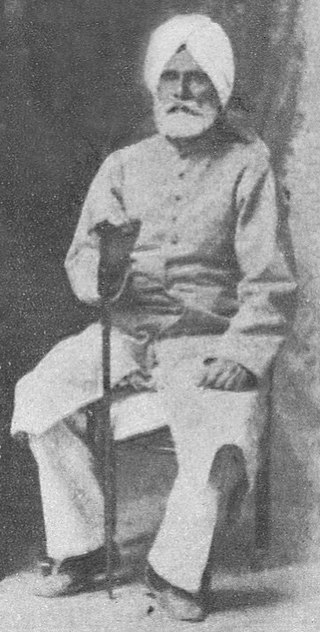
Altaf Hussain Hali, also known as Maulana Khawaja Hali, was an Urdu poet and writer.

Urdu literature comprises the literary works, written in the Urdu language. While, It tends to be dominated by poetry, especially the verse forms of the ghazal and nazm, it has expanded into other styles of writing, including that of the short story, or afsana. Urdu literature is popular mostly in Pakistan, where Urdu is the national language, and in India, where it is an Eighth Schedule language.

Ahmed Ali was a Pakistani novelist, poet, critic, translator, diplomat and scholar. A pioneer of the modern Urdu short story, his works include the short story collections: Angarey (Embers), 1932; Hamari Gali, 1940; Qaid Khana, 1942; and Maut Se Pehle, 1945. His other writings include Twilight in Delhi (1940), his first novel in the English language.
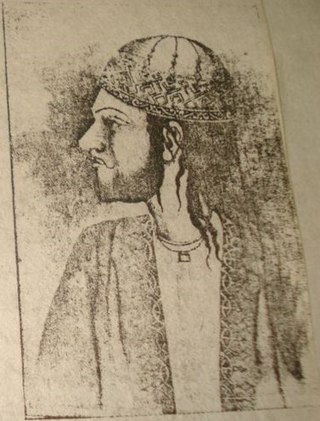
Momin Khan Momin was a late Mughal era poet known for his Urdu ghazals. A lesser-known contemporary of Ghalib and Zauq, he used "Momin" as his pen name. His grave is located in the Mehdiyan cemetery in Maulana Azad Medical College, Delhi.
Ralph Russell SI was a British scholar of Urdu literature and a Communist.

Old Delhi is an area in the Central Delhi district of Delhi, India. It was founded as a walled city named Shahjahanabad in 1648, when Shah Jahan decided to shift the Mughal capital from Agra. The construction of the city was completed in 1648, and it remained the capital of Mughal India until its fall in 1857, when the British Empire took over as paramount power in the Indian subcontinent.

Mir Muhammad Taqi, known as Mir Taqi Mir, was an Urdu poet of the 18th century Mughal India and one of the pioneers who gave shape to the Urdu language itself. His father's name was Meer Muttaqi. After his father's death, his step-Brothers took control over his property. His step-uncle took care of him after he was orphaned and after the death of his step-uncle(paternal) his maternal step-uncle took care of him. The signature of his poetry is the grief he expresses. He has expressed a lot of grief over the downfall of his city, Delhi. He was one of the principal poets of the Delhi School of the Urdu ghazal and is often remembered as one of the best poets of the Urdu language. His pen name (takhallus) was Mir. He spent the latter part of his life in the court of Asaf-ud-Daulah in Lucknow.
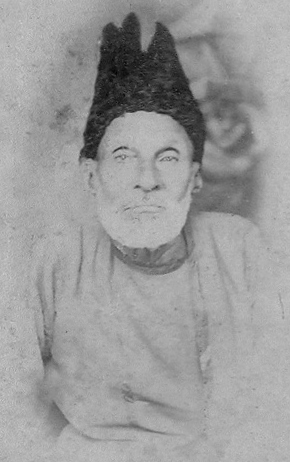
Mirza Beg Asadullah Khan (1797–1869), also known as Mirza Ghalib, was an Indian poet. He was popularly known by the pen names Ghalib and Asad. His honorific was Dabir-ul-Mulk, Najm-ud-Daula. During his lifetime, the already declining Mughal Empire was eclipsed and displaced by the British East India Company rule and finally deposed following the defeat of the Indian Rebellion of 1857; these are described through his work.

Mirza Ghalib is a 1954 Indian Hindi and Urdu language biographical film, directed by Sohrab Modi. Based on the life of well-known poet Mirza Ghalib, the film was acclaimed upon release. It stars Bharat Bhushan as Ghalib and Suraiya as his tawaif lover, Moti Begum. The film won the President's Gold Medal for the All India Best Feature Film and the President's Silver Medal for Best Feature Film in Hindi in the 2nd National Film Awards for 1954. The film is also considered as one of Suraiya's best performance.
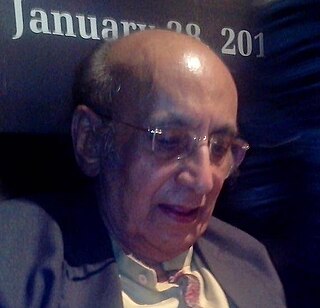
Muqtida Hasan Nida Fazli, known as Nida Fazli, was a prominent Indian Hindi and Urdu poet, lyricist and dialogue writer. He was awarded the Padma Shri in 2013 by the government of India for his contribution to literature.

Mahmud Hasan Deobandi was an Indian Muslim scholar and an activist of the Indian independence movement, who co-founded the Jamia Millia Islamia University and launched the Silk Letter Movement for the freedom of India. He was the first student to study at the Darul Uloom Deoband seminary. His teachers included Muhammad Qasim Nanawtawi and Mahmud Deobandi, and he was authorized in Sufism by Imdadullah Muhajir Makki and Rashid Ahmad Gangohi.
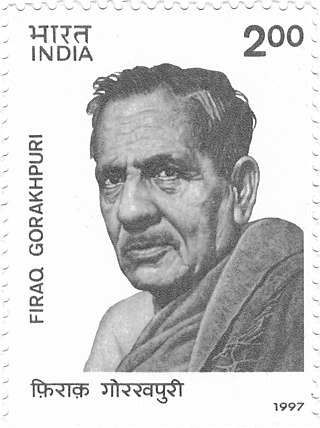
Raghupati Sahay, also known by his pen name Firaq Gorakhpuri, was an Indian writer, critic, and, according to one commentator, one of the most noted contemporary Urdu poets from India. He established himself among peers including Muhammad Iqbal, Yagana Changezi, Jigar Moradabadi and Josh Malihabadi.

Gopi Chand Narang was an Indian theorist, literary critic, and scholar who wrote in Urdu and English. His Urdu literary criticism incorporated a range of modern theoretical frameworks including stylistics, structuralism, post-structuralism, and Eastern poetics.

Rajinder Singh Bedi was an Indian Urdu writer of the progressive writers' movement and a playwright, who later worked in Hindi cinema as a film director, screenwriter and dialogue writer and he is grandfather to Rajat Bedi and Manek Bedi.
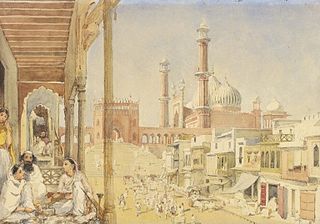
The Urdu Bazaar is a major market in the walled city of Delhi, India that connected the canal in the middle of Chandni Chowk to Jama Masjid. The original market was destroyed in the aftermath of Indian Rebellion of 1857, but its name survives as a location near the Jama Masjid.
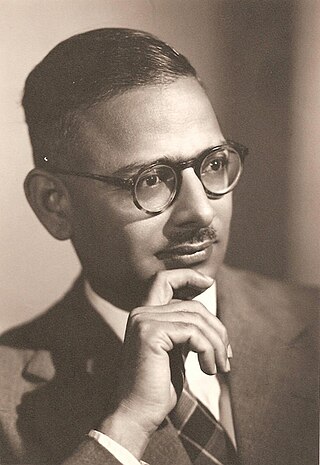
Malik Ram Baveja (1906–1993) was a renowned Urdu, Persian and Arabic scholar from India. He received the Sahitya Akademi Award in 1983 for his monumental work Tazkirah-e-Muasireen.
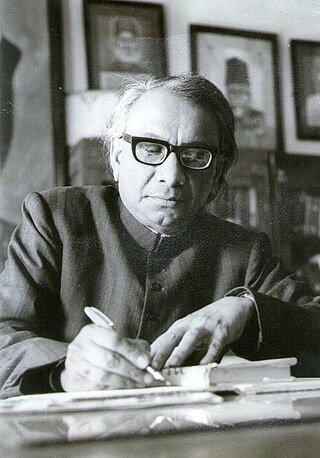
Abdul Qavi Desnavi was an Indian Urdu language writer, critic, bibliographer and linguist. He wrote many books on Urdu literature. His works included about Maulana Abul Kalam Azad, Mirza Ghalib and Allama Muhammad Iqbal. He was awarded with several awards for his literary works.
Ghulam Rasool Mehr was a Pakistani Muslim scholar and political activist born in Phoolpur, a village in the district of Jalandhar, British India.

Ghalib ki Haveli was the residence of the 19th century Urdu poet Mirza Ghalib and is now a heritage site located in the Gali Qasim Jan, Ballimaran, Old Delhi and reflects the period when the Mughal era was on the decline in India.
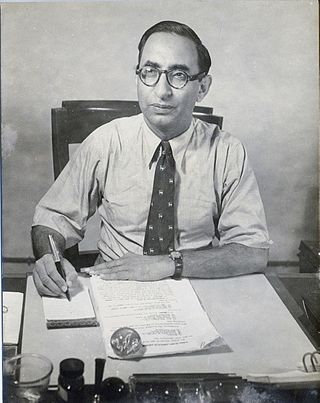
Sheikh Muhammad Ikram better known as S. M. Ikram, was a Pakistani historian, biographer, and littérateur. He was member of the Indian Civil Service. In 1947, when Pakistan emerged from British India, Ikram opted for Pakistan and served in the Civil Service of Pakistan. On July 1, 1966, he was appointed as director, Institute of Islamic Culture, Lahore, a position he occupied until his death in 1973, at the age of sixty-four.


















